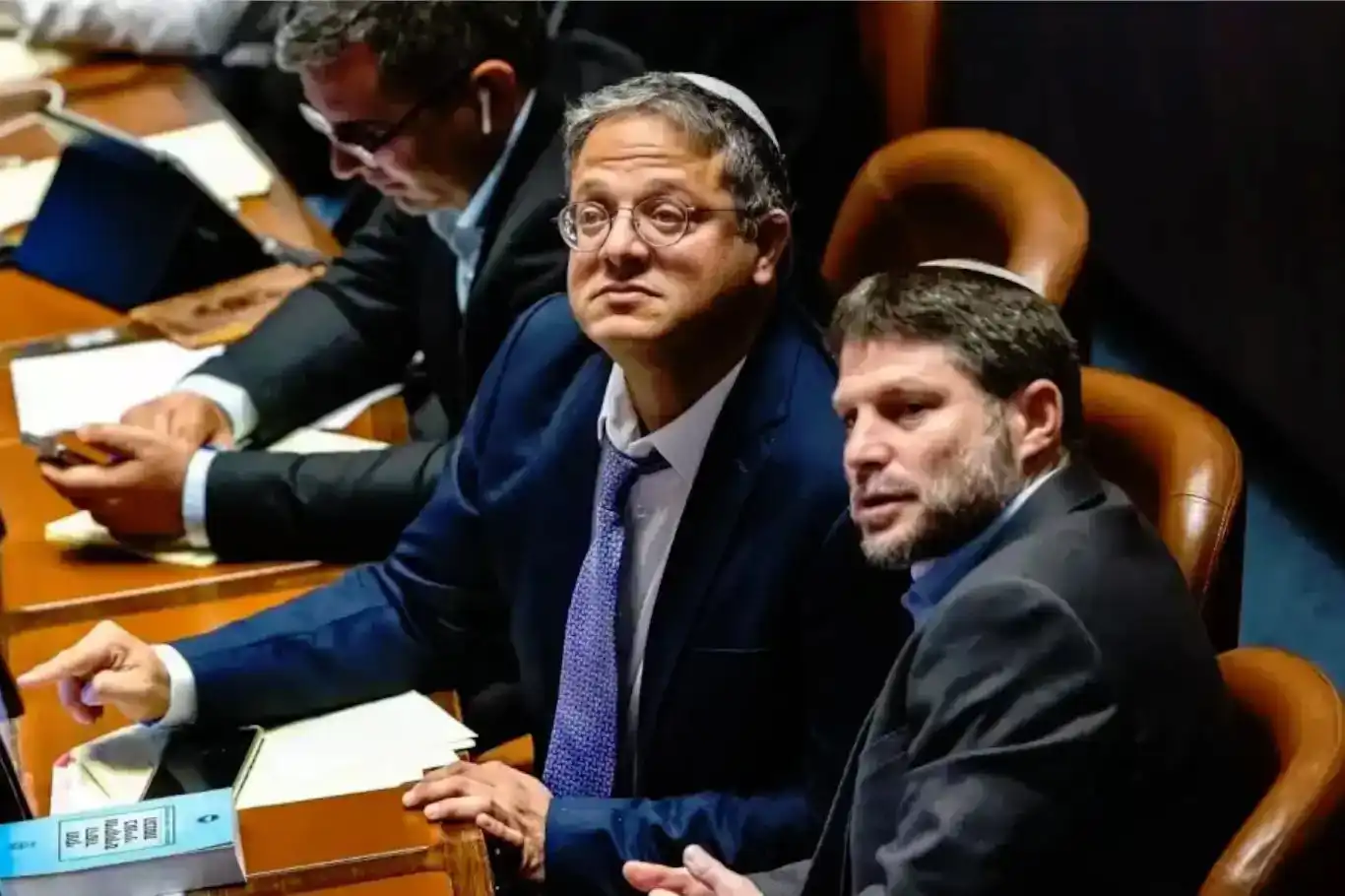Israeli extremists Smotrich, Ben-Gvir break with Netanyahu over Gaza ceasefire


The newly reached Gaza ceasefire agreement, which includes provisions for the release of Palestinian prisoners, has ignited fierce controversy within the Israeli government, exposing deep divisions in the ruling coalition.
Two of Israel’s most hardline ministers, Finance Minister Bezalel Smotrich and National Security Minister Itamar Ben-Gvir, have publicly opposed the deal, claiming that it could embolden what they call a new wave of Palestinian resistance.
Smotrich voiced his disapproval in a statement, saying: “While we are pleased about the return of our detained brothers, we are concerned about the consequences of emptying the prisons. A new generation of resistance will emerge and continue to shed Jewish blood.”
He confirmed that he would vote against the agreement, which was reached under the mediation of the United States, Qatar, Egypt, and Türkiye.
Following the announcement, Ben-Gvir convened an emergency meeting with his far-right party members to discuss their position. According to Israeli media reports, the meeting lasted about two hours and featured intense arguments—with some members urging the party to withdraw from Prime Minister Benjamin Netanyahu’s coalition government.
In the end, the party decided to stay in the coalition but declared that it would vote against the ceasefire, a move seen by analysts as a blow to Netanyahu’s already fragile government.
The dispute has dominated Israeli media coverage, with political and military commentators underscoring the widening rift within the far-right bloc.
Haaretz columnist Ophira Levinson wrote that Israel’s far-right “is politically finished,” adding: “Reestablishing settlements in Gaza is impossible; any such initiative would face boycotts beyond those applied in South Africa.”
Meanwhile, military analyst Avi Issacharoff of Yedioth Ahronoth called the ceasefire a “military victory but a political loss.” He observed that despite Israel’s massive assaults on Gaza and the killing of numerous Palestinian resistance leaders, the operation failed to yield any tangible political benefit for Tel Aviv.
Arab media outlets including Al Jazeera, Arab News, Middle East Eye, and The National have highlighted the far-right backlash as a sign of deep political fractures within Israel, warning that such divisions could further destabilize the situation in Gaza.
Analysts noted that Smotrich and Ben-Gvir’s rejection of the ceasefire underscores the ideological extremism dominating Israeli politics—and could, ironically, fuel a new generation of Palestinian resistance driven by the same occupation and oppression that the ceasefire seeks to end.
The ceasefire agreement, mediated by regional and international actors, marks the first major step toward ending nearly two years of relentless Israeli aggression that has left over 67,000 Palestinians martyred—the majority women and children—and tens of thousands injured. (ILKHA)
LEGAL WARNING: All rights of the published news, photos and videos are reserved by İlke Haber Ajansı Basın Yayın San. Trade A.Ş. Under no circumstances can all or part of the news, photos and videos be used without a written contract or subscription.
Colombian President Gustavo Petro has sharply criticized the United States over recent aerial strikes in the Caribbean Sea, stating that US forces have killed Colombian citizens while targeting suspected drug trafficking boats.
Russian President Vladimir Putin and Azerbaijani President Ilham Aliyev met on Thursday in Tajikistan for their first full-scale discussion in several months, signaling a renewed focus on bilateral ties between Moscow and Baku.
Nine Palestinian civilians were killed on Thursday in continued Israeli gunfire and shelling targeting multiple areas across the Gaza Strip, medical sources confirmed.
The Swedish Academy awarded Hungarian novelist László Krasznahorkai the 2025 Nobel Prize in Literature, praising his work for reaffirming the power of art in the face of despair.